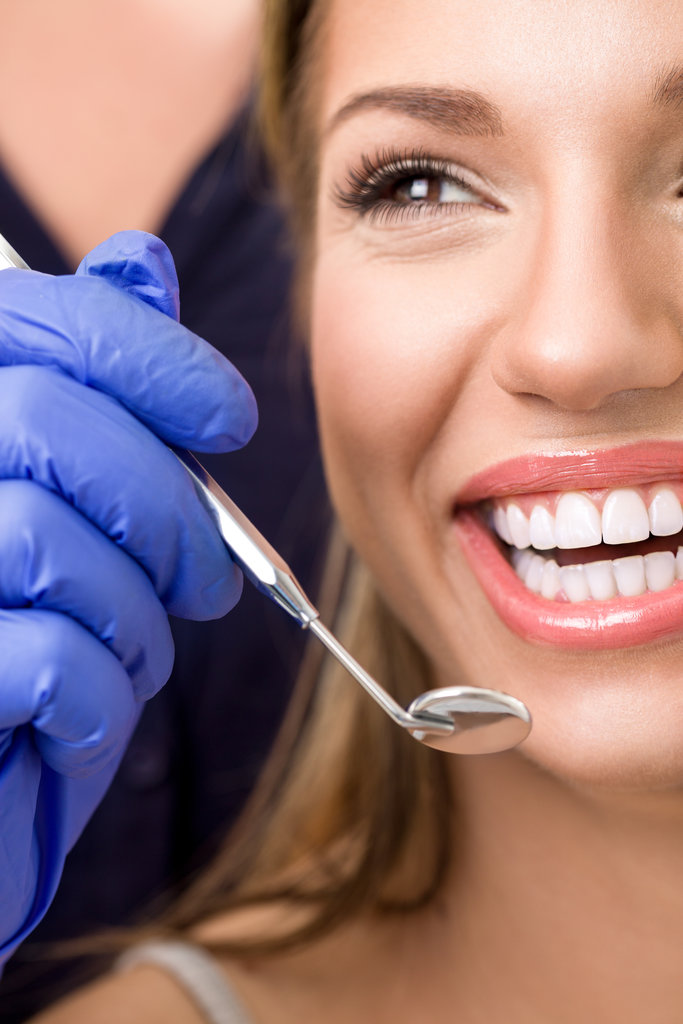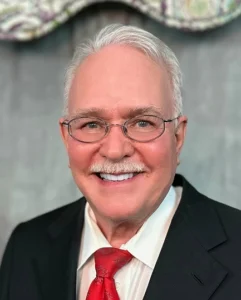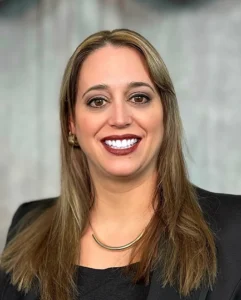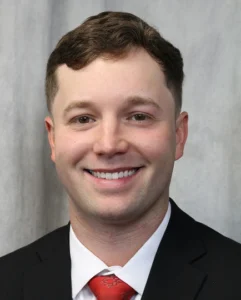Find Answers You Need to Questions on Implant Dentistry
The professionals at Simpson Dental PLLC have the answers you need to the most commonly asked questions about implant dentistry and other smile services we offer in Charleston, WV. Our experienced team combines over 75 years of family dental tradition with cutting-edge technology to provide exceptional implant solutions. Be sure to check back on this page often, and we invite you to call or email our office. Our patients rely on our knowledge and experience to help improve your smile and the health of your teeth.
General and Family Dentistry Financing Available
Quality dental care for the entire family with flexible financing that makes comprehensive treatment accessible.

Here are the most frequently asked questions about dental implants:
1. What are dental implants?
Dental implants are artificial root replacements made from biocompatible materials that integrate with your jawbone to support crowns, bridges, or dentures. They consist of three parts: the implant post (which acts as the artificial root), an abutment (connector piece), and the crown or prosthetic tooth. This three-piece system provides the most stable and long-lasting tooth replacement option available, functioning just like your natural teeth.
2. What are the advantages of dental implants over other tooth replacement options?
Dental implants offer several significant advantages over traditional dentures and bridges. They don’t require support from adjacent healthy teeth, preserving your natural tooth structure. Implants help maintain jawbone density by providing the stimulation naturally provided by tooth roots. They offer superior chewing efficiency, allowing you to eat all your favorite foods with confidence. Additionally, implants never slip, click, or require messy adhesives like traditional dentures.
3. How successful are dental implants?
Dental implants have a success rate of 95%, making them one of the most predictable procedures in dentistry. At Simpson Dental PLLC, our success rates are even higher due to our meticulous planning, advanced technology, and experienced surgical team. With proper care and maintenance, dental implants can last a lifetime, making them an excellent long-term investment in your oral health.
4. Am I a good candidate for dental implants?
Most people with missing teeth can be great candidates for dental implants. Ideal candidates have adequate bone density to support the implant, healthy gums, and good overall health. However, even patients with bone loss may be candidates through bone grafting procedures. Our comprehensive evaluation includes advanced imaging to determine your candidacy and develop the optimal treatment plan for your specific situation.
5. Does the dental implant procedure hurt?
Most patients report minimal discomfort during and after dental implant placement. We use local anesthesia to ensure complete comfort during the procedure, and most patients describe feeling only mild pressure. Post-operative discomfort is typically manageable with over-the-counter pain medication, and most patients return to work the next day. Our gentle surgical techniques and advanced technology minimize trauma and promote faster healing.
6. How long does the dental implant process take?
The dental implant timeline varies depending on your specific situation. Simple cases may be completed in 3-6 months, while complex cases requiring bone grafting may take longer. At Simpson Dental PLLC, we offer same-day solutions when appropriate, allowing some patients to receive their new teeth in a single appointment. During your consultation, we’ll provide a personalized timeline based on your treatment plan.
7. How much do dental implants cost?
Dental implant costs vary based on the complexity of your case, the number of implants needed, and any additional procedures required. While the initial investment may seem significant, implants often provide better long-term value than other tooth replacement options due to their longevity and functionality. We work with most insurance plans and offer flexible financing options to make implant treatment accessible.
8. What is the difference between dental implants and dentures?
Dental implants are permanently placed in your jawbone and function like natural teeth, while dentures are removable prosthetics that rest on your gums. Implants provide superior stability, chewing efficiency, and comfort compared to traditional dentures. They also help preserve jawbone structure, preventing the facial collapse that often occurs with long-term denture wear. implant-supported dentures combine the stability of implants with the comprehensive tooth replacement of dentures.
9. Can dental implants be done in one day?
Yes, in many cases we can provide same-day dental implants with our “Teeth-in-a-Day” program. This advanced technique allows us to place implants and attach temporary teeth during the same appointment, eliminating the waiting period traditionally associated with implant treatment. However, not all cases are suitable for immediate loading, and we’ll determine the best approach during your consultation.
10. Will my dental insurance cover implant treatment?
Dental insurance coverage for implants varies by plan, but many insurance companies are beginning to recognize implants as a standard treatment option. We’re committed to helping you maximize your insurance benefits and will work with your insurance company to secure the best possible coverage. Our office provides detailed treatment estimates and works with various financing options to make implant treatment affordable.
11. How do I care for my dental implants?
Caring for dental implants is similar to caring for natural teeth. Daily brushing and flossing are essential, along with regular professional cleanings and check-ups. Special implant floss and interdental brushes may be recommended to clean around the implant sites effectively. With proper oral hygiene and regular professional care, your dental implants can last a lifetime.
12. Can dental implants fail?
While dental implant failure is rare, it can occur, typically due to infection, insufficient bone integration, or excessive force on the implant. Early failure usually happens within the first few months, while late failure can occur years later, often due to gum disease or inadequate oral hygiene. Our comprehensive planning and follow-up care minimize the risk of implant failure and ensure optimal long-term success.
13. What happens if I don’t replace my missing teeth?
Missing teeth cause numerous problems beyond appearance. Within the first three months of tooth loss, you can lose up to 25% of the bone in that area, leading to facial collapse over time. Remaining teeth shift into vacant spaces, causing bite problems and increased risk of decay and gum disease. Missing teeth also affect speech, chewing efficiency, and nutrition, ultimately impacting your overall health and quality of life.
14. Are there any age restrictions for dental implants?
There are no upper age limits for dental implants. As long as you have adequate bone density and are healthy enough for minor oral surgery, age alone doesn’t disqualify you from implant treatment. In fact, many of our most satisfied implant patients are seniors who want to improve their quality of life and eating ability. We evaluate each patient individually to determine the best treatment approach.
15. Can I get dental implants if I have gum disease?
Active gum disease must be treated and controlled before implant placement. However, having a history of gum disease doesn’t automatically disqualify you from implant treatment. Our comprehensive periodontal therapy can often restore gum health and create the optimal environment for successful implant placement. We’ll evaluate your periodontal status and develop a treatment plan to ensure the best possible outcome.
16. What are All-on-4 or full arch implants?
All-on-4 and similar full arch treatments use four to six strategically placed implants to support a complete set of replacement teeth. This technique allows patients with extensive tooth loss to receive a full arch of non-removable teeth, often in a single day. It’s an excellent option for patients who are unhappy with dentures or facing full tooth extraction, providing immediate function and aesthetics.
17. Can dental implants be rejected by my body?
True implant rejection is extremely rare because implants are made from biocompatible materials like titanium that integrate naturally with bone tissue. What some people call “rejection” is usually failure to integrate due to infection, poor oral hygiene, or other factors. Our careful patient selection, meticulous surgical technique, and comprehensive follow-up care minimize the risk of integration problems.
18. How long do dental implants last?
With proper care, dental implants can last a lifetime. The implant post itself is designed to be permanent, while the crown or prosthetic portion may need replacement after 15-20 years due to normal wear. This longevity makes implants an excellent investment compared to other tooth replacement options that require regular replacement or adjustment.
19. Can I eat normally with dental implants?
Yes, one of the greatest benefits of dental implants is the ability to eat all your favorite foods without restriction. Unlike dentures, which can slip or limit food choices, implants function just like natural teeth. You can bite into apples, chew steak, and enjoy corn on the cob with complete confidence. This restored eating ability often improves nutrition and overall health.
20. What makes Simpson Dental different for dental implant treatment?
Simpson Dental PLLC offers unique advantages for implant treatment, including our on-site dental laboratory staffed by three full-time technicians with over 60 years of combined experience. This allows us to create custom restorations quickly and precisely, often providing same-day solutions. Our advanced technology, including 3D imaging and surgical planning software, ensures optimal implant placement and predictable results. Combined with over 75 years of family dental tradition, we provide the perfect blend of experience, technology, and personalized care.
Schedule Your Consultation Today
When you choose Simpson Dental PLLC for your dental implant treatment, you’re selecting a practice with an unmatched commitment to excellence and innovation. Since 1948, our family dental practice has been pioneering advanced treatments in Charleston, West Virginia, always staying at the forefront of dental technology and techniques.
Our comprehensive implant services include single tooth replacement, multiple tooth restoration, full arch reconstruction, and implant-supported dentures. We utilize the most advanced 3D imaging and surgical planning technology to ensure precise implant placement and optimal outcomes. Our on-site dental laboratory allows us to create custom restorations that fit perfectly and look completely natural, often in a single day.
What sets us apart is our combination of cutting-edge technology with personalized, compassionate care. Our experienced team takes time to understand your specific needs and concerns, developing treatment plans that address not just your immediate dental needs but your long-term oral health goals. We believe every patient deserves the finest quality care using the best materials and most advanced techniques available.
Dr. Mark Simpson and Dr. Christen Simpson Raynes bring decades of combined experience to every implant procedure, supported by our skilled team and state-of-the-art facility. We’re committed to making implant treatment comfortable, convenient, and successful for every patient.
Ready to discover how dental implants can transform your smile and improve your quality of life? Contact Simpson Dental PLLC today at (304) 342-6162 or visit our convenient contact form to schedule your comprehensive implant consultation. Let us show you why patients throughout West Virginia trust us for their most important dental implant needs.

Meet Your Charleston Dentists
When you choose Simpson Dental, you’re choosing a team with three generations of experience serving Charleston, WV. Our doctors combine advanced training with a genuine commitment to patient care.

Dr. Mark W. Simpson, DDS
Dr. Mark Simpson continues the family tradition his father, Dr. Bob, established in 1948. With decades of experience and a commitment to the highest quality care, Dr. Simpson has built a reputation for excellence throughout Charleston.

Dr. Christen Simpson Raynes, DDS, MBA
As a third-generation dentist and one of the Top 25 Women in Dentistry, Dr. Christen brings advanced expertise and modern techniques to the practice. She combines her grandfather's and father's legacy with cutting-edge technology.

Dr. Chase Preston, DDS
Dr. Preston joined our team to provide exceptional care while maintaining the personal, family-focused approach that sets Simpson Dental apart.
Hear From Our Patients
Don’t just take our word for it. See what patients throughout Charleston are saying about their experience with Simpson Dental.
Explore Our Complete Dental Services
Simpson Dental offers comprehensive dentistry for patients throughout Charleston, WV. From preventive care to advanced restorative procedures, our three-generation practice delivers exceptional results.
- General Dentistry
- Cleanings
- Gum Disease Treatment
- Tooth Extractions
- Dental Botox & Fillers
Visit Us!
Conveniently located in Charleston, West Virginia, Simpson Dental has been serving our community since 1948. Our state-of-the-art facility features the most advanced dental technology in the state, including an on-site dental lab for same-day solutions.
Our central Charleston location makes it easy for patients throughout the Kanawha Valley to access exceptional dental care. We serve patients from Cross Lanes, South Charleston, Dunbar, St. Albans, Beckley, Fayetteville, Lewisburg, and surrounding communities. We also welcome patients from the Huntington area and nearby Ashland, Kentucky, who travel to Charleston for our specialized services and same-day solutions.
